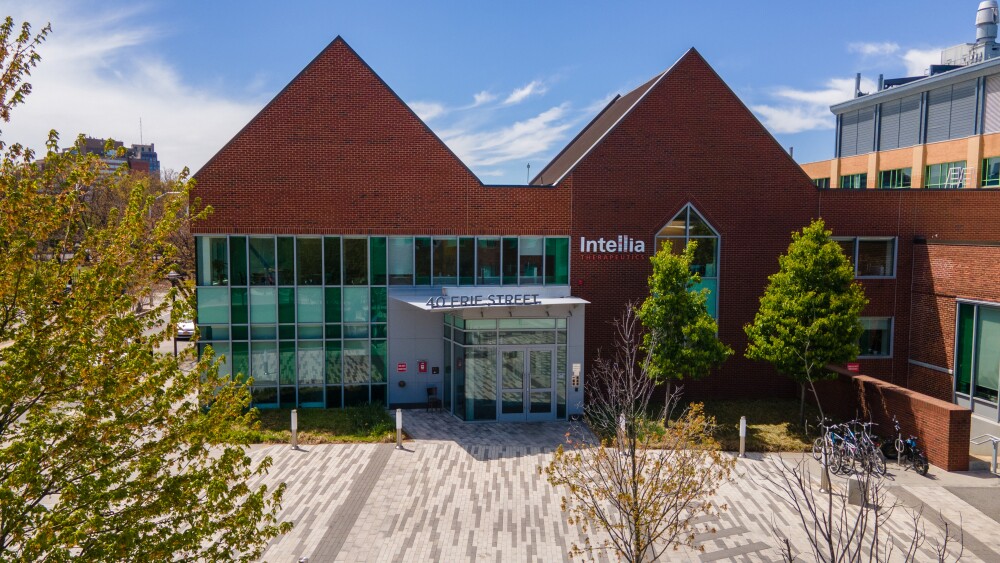The FDA previously placed two clinical studies on hold, including the Phase III trial in which the liver toxicity occurred. Intellia is working with experts to create a risk management program for nex-z.
A patient who developed life-threatening liver complications after being treated with Intellia’s CRISPR-based gene therapy nexiguran ziclumeran has died.
The death was attributed to “complicating comorbidities,” CEO John Leonard explained in a press announcement on Thursday, citing the patient’s attending physician. “We are deeply saddened to learn” about the death, he said, adding that the company is currently evaluating the case. In the meantime, Intellia has engaged “clinical investigators and external experts” to craft a risk mitigation plan for nexiguran ziclumeran (nex-z).
Intellia first disclosed the life-threatening event late last month, announcing that a patient had been hospitalized for grade 4 elevations in liver transaminase and bilirubin concentrations. The safety signal occurred in the Phase III MAGNITUDE study, which is testing nex-z in transthyretin amyloidosis (ATTR) with cardiomyopathy. At the time, Intellia voluntarily paused the MAGNITUDE study as well as the MAGNITUDE-2 trial in ATTR with polyneuropathy.
A few days later, the FDA officially slapped a clinical hold on MAGNITUDE and MAGNITUDE-2.
In its news release on Thursday, Intellia said it is still waiting to receive the FDA’s official clinical hold letter. “We continue to believe in nex-z’s potential” for ATTR, Leonard said in a statement. To date, according to the biotech, less than 1% of patients in MAGNITUDE have developed grade 4 liver toxicities, and no such case has been detected in MAGNITUDE-2. Intellia has administered nex-z to more than 650 patients.
Utilizing CRISPR technology, nex-z is a gene therapy that works by deactivating the TTR gene, in turn disrupting the expression of the protein transthyretin. In patients with TTR, this protein is misfolded and accumulates in nerves and tissues of the heart, compromising their function. Nex-z is being developed in partnership with Regeneron under an April 2016 contract.
There have long been safety concerns with nex-z. In August 2022, for instance, a Phase I study of the asset detected a “significant elevation in liver enzymes.” The case was asymptomatic and resolved without intervention, though it did prod Intellia to introduce a lower-dose regimen of nex-z.
Then, in May this year, the biotech reported an instance of a patient developing grade 4 liver enzyme elevation. Analysts at the time dismissed the episode, with BMO Capital Markets in a May 29 note calling the episode a “non-concern.”
According to its Q3 report on Thursday, Intellia has around $670 million in cash, cash equivalents and marketable securities, enough to keep its operations going into mid-2027.






